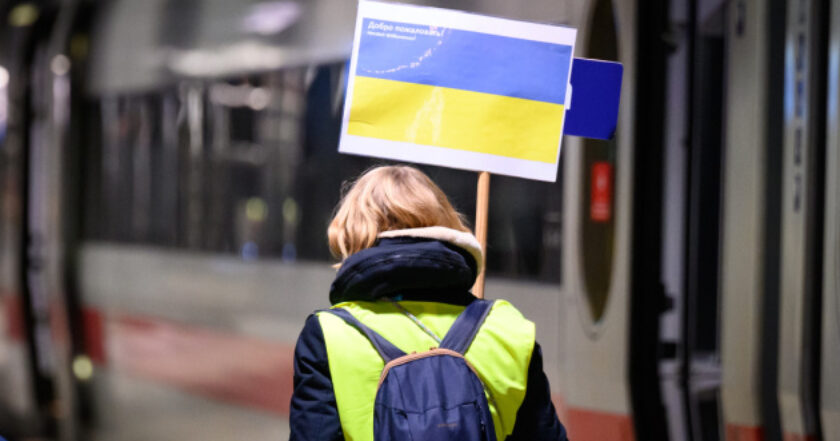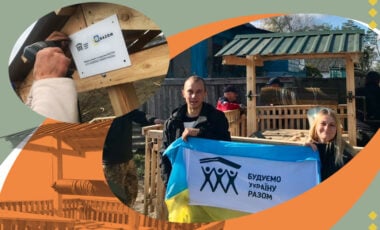Returning Ukrainian refugees home could disrupt Eastern European economies — Reuters

Фото: Jonas Walzberg / dpa
Central and Eastern European countries may face new economic challenges following the end of the war in Ukraine and the signing of a peace agreement with Russia. A major issue will be the return of a significant number of Ukrainian refugees, which could lead to labor shortages and strain local labor markets.
This was reported by Reuters, as cited by Rubryka.
Over the past two years, more than 4.3 million Ukrainians have taken refuge in EU countries, particularly in Poland, the Czech Republic, and Hungary. They have significantly contributed to the economic growth of these nations by filling labor market vacancies.
According to Eurostat, the largest share of Ukrainian refugees has remained in Poland (22%) and the Czech Republic (9%). However, the end of the war may result in a mass return of Ukrainians to their home country.
Raiffeisen Bank International predicts that economic growth in Central and Eastern Europe in 2023 will surpass that of the eurozone (2.2% versus 0.8%), but the outflow of labor could slow this progress.
"Part of the economic success in many countries is linked to Ukrainians who moved there over the last two years," said Christian Petter, head of Austria and CEE with J. Safra Sarasin.
Unemployment in Poland is at a record low, prompting employers to raise wages by 10% last year. Similarly, the Czech government foresees an impending labor shortage, a challenge that could also affect other countries in the region.
"Now, with the war hopefully being finished, of course, there is a big chance that these people will return to Ukraine and [leave a gap in] labour markets like in Prague, in Bratislava, in Warsaw, and will be a challenge to be replaced," says Petter.
The issue lies in the fact that a significant portion of the economic growth in countries such as Poland, the Czech Republic, and Hungary has been driven by Ukrainian workers. The departure of these workers could lead to labor shortages, directly impacting labor markets and increasing inflation.
Charlotte Rueh, Director for Central and South-Eastern Europe at the European Bank for Reconstruction and Development, highlights the demographic implications of this potential shift. "Demography is a risk, and it's one that a resolution of the war in Ukraine will make worse, because some of those Ukrainians will go back home." Many of these countries already face low unemployment, compounding the challenge.
A survey conducted by the Polish central bank in November 2024 reveals that, if the war ends:
- 59% of Ukrainian refugees plan to return to Ukraine.
- Among pre-war migrants, 34% express the same intention.
These findings point to a likely mass exodus of Ukrainian workers from Europe, which could have a significant impact on the region's economy.
Adding to the debate about the post-war future is US President-elect Donald Trump's promise to end the war between Russia and Ukraine after taking office. However, Trump's advisers caution that a ceasefire may still be months away.
Meanwhile, the United States has announced an 18-month extension of Temporary Protected Status (TPS) for Ukrainian citizens.
Temporary protection for Ukrainian refugees in other countries
The temporary protection mechanism for Ukrainians fleeing the full-scale war in Ukraine came into effect across many European Union countries on March 4, 2022.
On December 31, it was reported that the United Kingdom had granted asylum to over 300,000 Ukrainians forced to leave their homeland due to the Russian invasion.
Additionally, on December 21, the Chamber of Deputies, the lower house of the Czech Parliament, approved the third reading of the Lex Ukraine VII legislation, which allows the extension of temporary protection for Ukrainian asylum seekers for another year.
Furthermore, on June 25, the Council of the European Union decided to extend temporary protection until March 4, 2026, for more than 4 million Ukrainians who sought refuge in the EU from Russia's aggression.
It is also worth noting that some European countries have introduced financial incentives for early return, offering Ukrainians up to €5,300 to encourage them to go back home.





















































